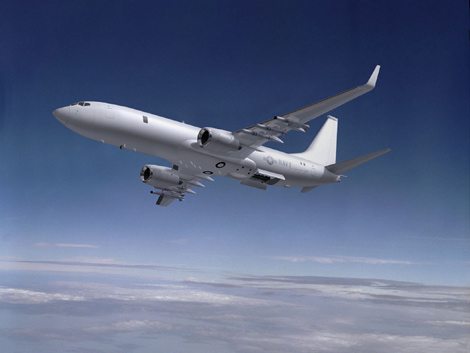After an extensive testing period, the U.S. Navy announced July 1 in an Initial Operational Test and Evaluation report that its new patrol and reconnaissance aircraft, P-8A Poseidon, was found “operationally effective, operationally suitable, and ready for fleet introduction.”
“This milestone and accomplishment is possible due to the great team of individuals who worked diligently and meticulously in making this aircraft the best choice to replace the Navy’s current workhorse, the P-3C Orion,” said Capt. Scott Dillon, Maritime Patrol and Reconnaissance Aircraft Program Office (PMA-290) program manager. “It is a great day for the Navy and the fleet. We are proud to add the P-8 to the Navy’s weapons inventory and the deployment cycle later this year.”
This announcement of completing IOT&E follows another major program milestone last month, the successful firing of the Harpoon from the P-8A, which resulted in a successful target strike.
“On June 24, completing just one practice run at the Point Mugu Sea Test Range, a P-8A Poseidon from Pax River achieved a program milestone after six minutes of flight time,” Dillon said. “The P-8A successfully launched a Harpoon AGM-84D Block IC missile on the first hot run scoring a direct hit run on a Low Cost Modular Target. This flight test, along with past tests, demonstrates the P-8’s operational effectiveness and overall mission capabilities.”
The successful completion of the initial operational testing period was a key milestone that will inform the full-rate production decision.
With the program passing IOT&E, the P-8A program continues to be on track for an initial operational deployment this winter when the first P-8A squadron will deploy with P-3 and EP-3 squadrons.
To date, nine low rate initial production aircraft have been delivered to the fleet and six test aircraft have been delivered to NAVAIR. According to the program of record, the Navy plans on purchasing 117 P-8As aircraft.
The P-8A Poseidon will replace the P-3C Orion as a long-range anti-submarine warfare (ASW), anti-surface warfare, intelligence, surveillance and reconnaissance aircraft, capable of broad-area, maritime and littoral operations. This valuable addition to naval air forces will protect the sea base and to enhance the Navy’s forward presence.









